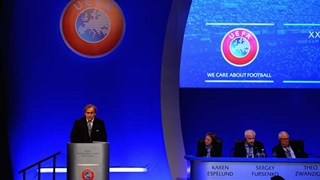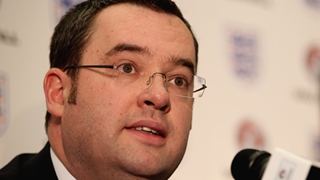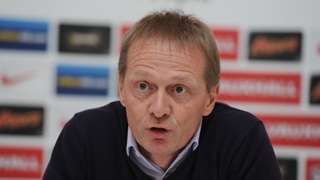
The FA will be well represented when the 38th UEFA Congress. Chairman Greg Dyke, vice-chairman David Gill, also a UEFA Executive Committee member, and general secretary Alex Horne are all in Astana for the annual gathering of 54 member associations.
The Congress, which this year is marking the 60th anniversary of European football’s governing body, is to follow on from a UEFA Executive Committee meeting.
UEFA general secretary Gianni Infantino told a media briefing on Wednesday that Michel Platini's presidential speech at the opening of the Congress would provide a turning point for European football.
What is the UEFA Congress?
The UEFA Congress is UEFA's supreme controlling organ. An Ordinary Congress is held every year. A second Ordinary Congress may be called by the UEFA Executive Committee to deal with financial matters and/or matters of particular significance. The last one took place in London in May 2013.
Although the exact details have yet to be revealed, the Nations League competition will largely replace friendly games and become, in effect, the third major international competition for European teams after the World Cup and European Championship.
The plan would involve teams playing in three or four divisions, with promotion and relegation between them. The competition would culminate in a "final four" tournament with two semi-finals and a final taking place at a neutral venue in the summer of odd-numbered years.
Speaking ahead of Thursday's gathering, Infantino said: "What has triggered this whole discussion is that we have been working to establish a new international calendar.
"We also wanted to bring more structure to the dates when there are friendly matches.
"There are some countries everyone wants to play against and other teams who struggle to find opponents, so we looked for something new and have come up with the Nations League, which will be presented to Congress on Thursday."
On the issue of match-fixing, Infantino gave more detail on the proposals UEFA want to introduce to deal with match-fixing, which, he said, was only producing 0.7 per cent alerts from the 32,000 matches UEFA monitors 365 days a year, 24 hours a day.
"That is still 0.7 too many. An alert does not mean the match is fixed, of course, but it alerts us to anything unusual taking place," he added.
"But even 0.001 per cent is too many. We are sure there is nothing going on at the top level of the major leagues. But our objective is to completely eradicate match fixing from football, so that is why we are continuing to work on it.
"There are many aspects to this and we are looking to harmonise sanctions across Europe as much as possible with life bans issued across the continent, and no statutes of limitations for when sanctions can be applied.
"We are working with integrity officers in each country who are working with police forces, and we also want 'sports fraud' enshrined as a crime in the relevant criminal law because this allows police forces to act.
"We also want hard, strict sanctions in every country including life bans. The criminals will always try and stay one step ahead but we believe match fixing is reducing with what we already have in place, like our betting fraud detection system."










